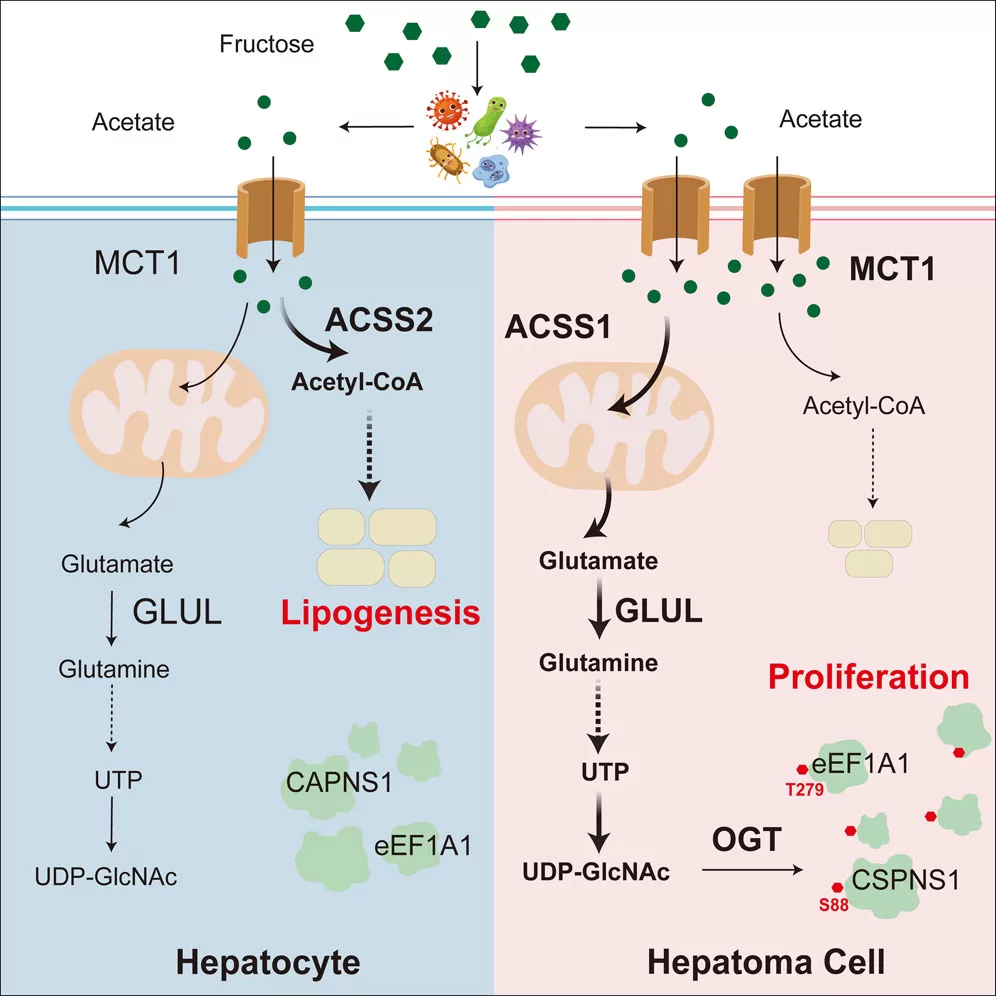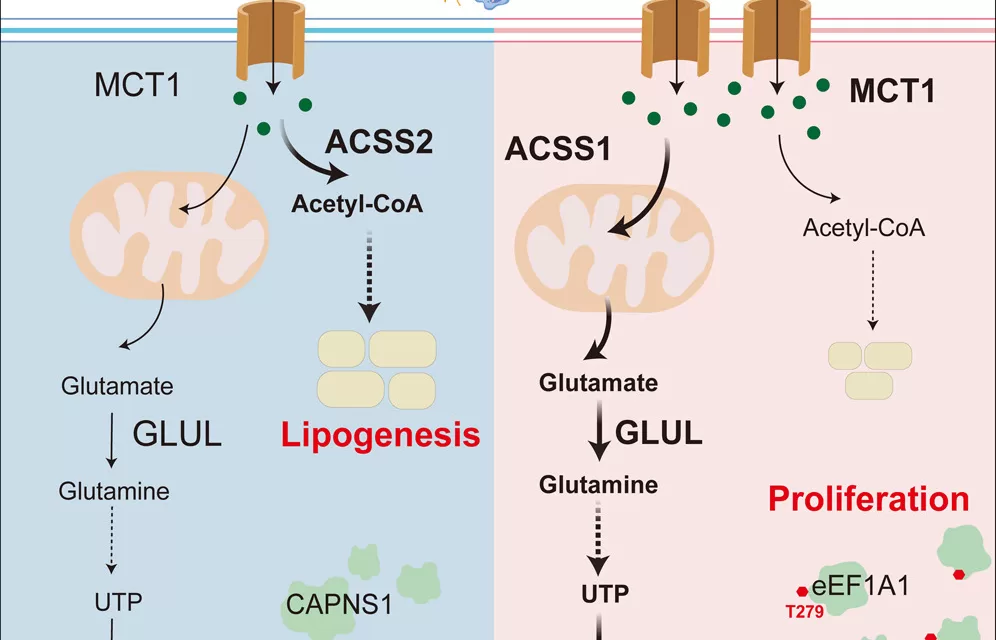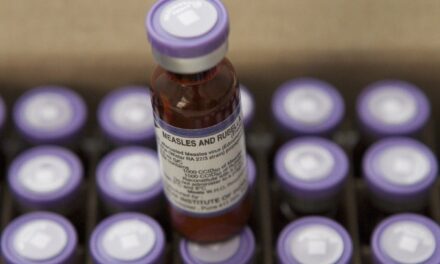
In a groundbreaking study, emerging research has shed light on the detrimental impact of high dietary fructose on the progression of hepatocellular carcinoma (HCC), a form of liver cancer. Scientists have uncovered that increased levels of uridine diphospho-N-acetylglucosamine (UDP-GlcNAc) and O-GlcNAcylation, induced by fructose intake, play a pivotal role in fueling the growth of HCC.
The study, conducted on wild-type C57BL/6 mice using both spontaneous and chemically induced HCC models, demonstrated a direct correlation between high fructose supplementation and the acceleration of HCC development. Non-targeted metabolomics and stable isotope tracing techniques further revealed that microbiota-derived acetate, under fructose treatment, leads to an elevation in glutamine and UDP-GlcNAc levels, consequently intensifying protein O-GlcNAcylation within the cancerous cells.
Global profiling of O-GlcNAcylation unveiled a critical finding: the hyper-O-GlcNAcylation of eukaryotic elongation factor 1A1, a protein associated with cellular growth, played a central role in driving cell proliferation and tumor expansion.
Remarkably, targeting glutamate-ammonia ligase or O-linked N-acetylglucosamine transferase (OGT) proved highly effective in impeding HCC progression in mice with high fructose intake. This breakthrough suggests potential avenues for intervention and treatment strategies for individuals at risk of HCC due to excessive fructose consumption.
These findings have far-reaching implications for public health, particularly in societies where high fructose diets are prevalent. Researchers and medical professionals are now urging for increased awareness of the risks associated with excessive fructose intake and the importance of dietary modifications in mitigating the progression of HCC.
The scientific community eagerly anticipates further studies to validate these findings and explore potential therapeutic interventions that could revolutionize the treatment of HCC in patients with a history of high fructose consumption.
Source:











